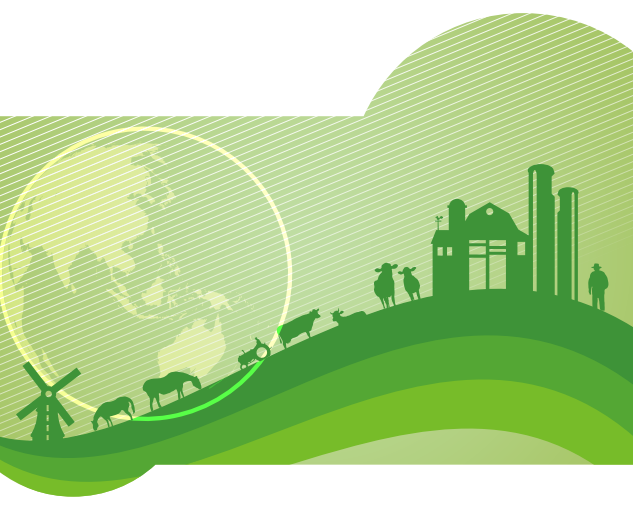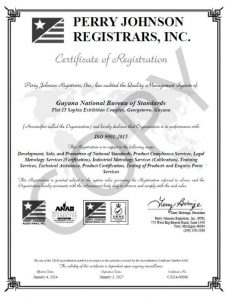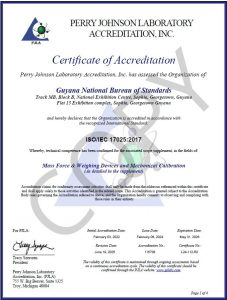As Guyana’s local economy expands with new industries, businesses, products, and services, it is vital that our country also remains focused on maintaining a robust Agricultural Sector. The Guyana National Bureau of Standards (GNBS) continues to develop and revise available national standards relating to the sector to ensure wholesome agricultural produce for immediate consumption, and quality input for agro-processing and exports.
The application of the relevant standards in this mainstay sector can help farmers by providing best practices and farming methods to support sustainable production, harvesting, and grading of produce and ultimately contribute to achieving the target set to reduce the food bill of the CARICOM Region by 25 % by 2025.
Recently, the GNBS completed the revision of three important standards for the agriculture sector: GYS 24:2023, Specification for Grades of Green Plantain, GYS 6:2023, Specification for Grades of Fresh Ginger and GYS 4:2023, Specification for Grades of Watermelons. These standards were approved as National Standards to reflect advances in the sector and to be applicable to current market requirements.
The grades prescribed in the standards are intended to facilitate transactions among growers, buyers and sellers who may wish to use a purchasing system based on the quality of green plantains, ginger or watermelons delivered. The quality requirements also serve as a guide to farmers who are aiming to produce the best yields.
More specifically, the grading standards contain requirements and specifications to help producers, regulators, and consumers identify or categorize agricultural produce. With these standards, produce can be separated based on size, colour, freshness and several other characteristics. Further, stipulated grading requirements help to differentiate what is suitable for a particular use and help to determine produce suitable for the export market.
Notably, all three of the newly revised standards contain packaging and labelling requirements. For example, the Specification for the grades of watermelon states that watermelon shall be packed in double-walled fibreboard cartons or woven rice bags free from smell, dirt, or any other foreign matter. The container shall be marked with the name of the producer, variety of produce, grade and size, place of origin, and net weight of contents, among other information.
The GNBS currently has a total of twenty-eight (28) agriculture-related standards which can be applied by those in the sector as benchmarks for quality.
Among these Agriculture Standards available are standards for the grading of fruits & vegetables including limes, cucumber, sweet oranges, passion fruit, avocado and mangoes, a Code of Practices for fresh fruits and vegetables and the Specifications for the labelling of seeds.
GNBS, by virtue of the Standards Act of 1984, is mandated to facilitate standards development. The Act provides for the preparation and promotion of standards by the Bureau in relation to commodities, services, processes and practices. Currently, there are more than 600 National Standards available at the Bureau under various categories including Consumer Products, Labelling, Agriculture, Electrical Equipment, Foods, Construction, Tourism, Environment and Energy Management. These standards can be viewed on the GNBS Standards Portal: gnbsguy.com
Stakeholders, including our local farmers, are urged to apply the requirements of available national standards in their businesses. The cost and scope of these documents can be found on the GNBS’ Standards Portal at https://gnbsguy.com/standards.
For further information, please get in touch with the GNBS on telephone numbers: 219-0064-66. You can also visit the GNBS Facebook and Instagram pages for regular updates.






